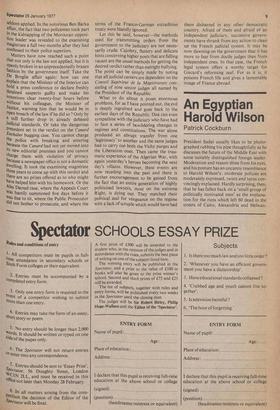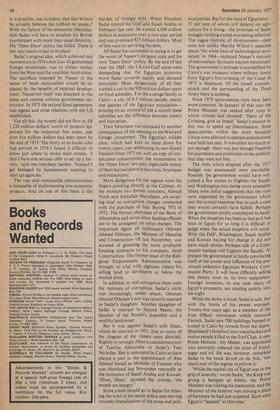An Egyptian Harold Wilson
Patrick Cockburn
President Sadat usually likes to be photographed rubbing his pipe thoughtfully as he discusses the future of the Middle East with some suitably distinguished foreign leader. Moderation and reason shine from his eyes, and his posture has an uncanny resemblance to Harold Wilson's: moderate policies are moderately expressed, twists and turns convincingly explained. Hardly surprising, then, that he has fallen back on a 'small group of politically motivated men' as the explanation for the riots which left 60 dead in the streets of Cairo, Alexandria and Helwan. Is it possible, one wonders, that like Wilson he actually believes the rubbish he speaks? With the failure of his economic liberalisation Sadat will have to emulate his British counterpart with more than usual dexterity. His 'Open Door' policy has failed. There is not very much to put in its place.
Sadat's original idea, which achieved real momentum in 1974 when Law 43 guaranteed foreign investment, was to attract money from the West and the wealthier Arab states, The sacrifices imposed by Nasser in the name of Arab nationalism would be replaced by the benefits of internal development. Nasserism itself was attacked in the press and cinema without government restriction. In 1975 the second Sinai agreement was signed and close relations with the US established.
For all this, the money did not flow in. Of 1,220 million dollars' worth of projects approved for the industrial free zones, just over five million dollars had been spent by the end of 1975. The thirty or so banks who had arrived in 1974-5 found it difficult to know just where to invest their money. 'I don't have one serious offer to set up a factory,' said one merchant banker. 'Instead I get besieged by businessmen wanting to start up agencies.'
The vast and ramshackle administration is incapable of implementing new economic projects. And on top of this there is the











































 Previous page
Previous page